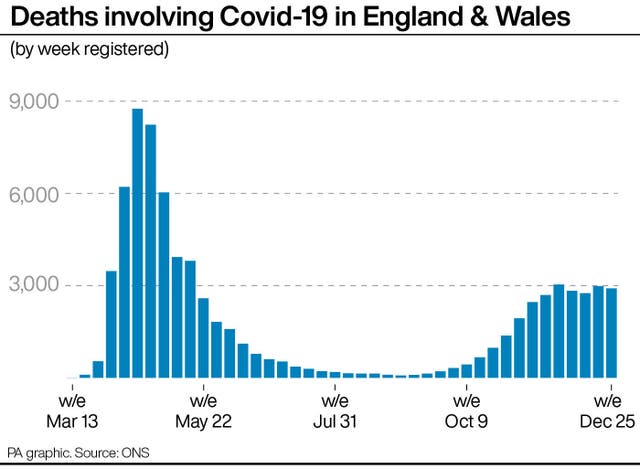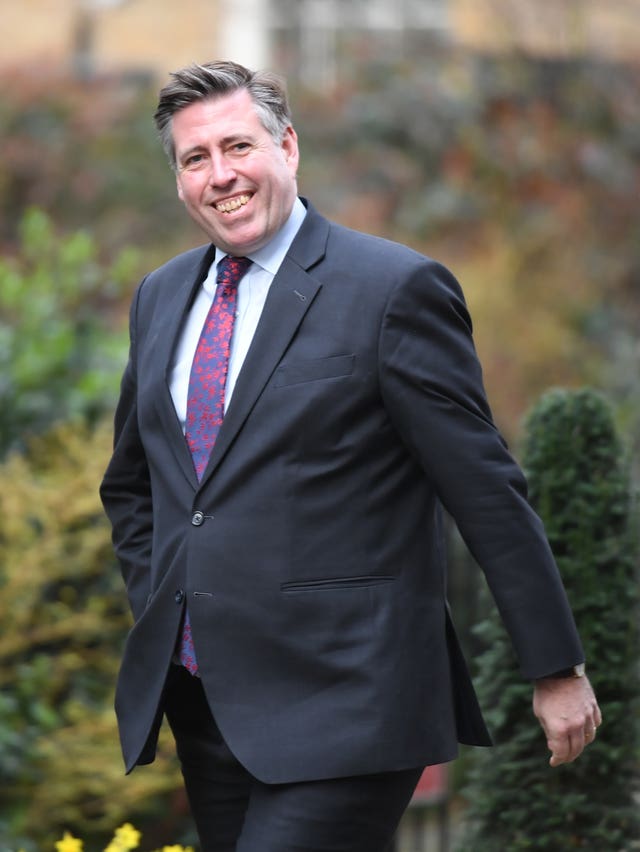Matt Hancock under pressure to give MPs final say over lifting of lockdown
The Health Secretary faced pleas from Conservative backbenchers to outline the road map to ease restrictions across England.

Matt Hancock has insisted he does not expect a full national lockdown to be in place until March 31, although he failed to guarantee MPs the final say.
The Health Secretary faced pleas from Conservative backbenchers to outline the road map to ease restrictions across England, as he moved regulations which would allow lockdown to run for three months.
Conservative Sir Graham Brady, chairman of the party’s backbench 1922 Committee, urged Mr Hancock to promise votes in the Commons at the end of January and end of February to allow MPs to decide if the “extreme controls” remain in place.
Sir Graham was among 12 Conservative MPs who rebelled to vote against the regulations, which were approved by 524 votes to 16 – majority 508.
Speaking in the Commons ahead of the vote, Sir Graham noted Prime Minister Boris Johnson had assured him he did not expect MPs to have to “wait that long” for an opportunity to decide whether or not to end the regulations.
But Sir Graham added: “Will he go further and give a commitment to a further vote at the end of January and end of February, so this House will have control over what is happening?”
Mr Hancock replied: “While these regulations do provide for new restrictions until the end of March, it is not because we expect the full national lockdown to continue until then but to allow the steady, controlled and evidence-led move down through the tiers on a local basis.
“Those tier changes do require a vote in Parliament.
“The restrictions will therefore be kept under continuous review, there’s a statutory requirement to review every two weeks and a legal obligation to remove them if they’re no longer deemed necessary to limit the transmission of the virus.”

Sir Graham later told the debate: “Both the Prime Minister and Secretary of State have given me reassuring words that they don’t want that but the regulation gives the power to the Government to decide that, not to this House.”
Conservative former minister Mark Harper, chairman of the Covid Recovery Group of lockdown sceptics, asked about what happens when most of those who are vulnerable have been vaccinated.
He asked Mr Hancock: “Once we’ve vaccinated those four groups and they’ve got immunity and we’ve taken care therefore of 80% of the risk of death, what possible reason is there at that point for not rapidly relaxing the restrictions that are in place on the rest of our country?”
Mr Hancock replied: “We have to see the impact of that vaccination on the reduction in the number of deaths, which I very much hope that we will see at that point, and so that is why we will take this – an evidence-led move down through the tiers, when we’ve broken the link, I hope, between cases and hospitalisations and deaths.
“We will need to see those numbers of – we will need to see the protection in reality, in lived reality on the ground, but we will watch this like a hawk and my aim is to keep these restrictions in place not a moment longer than they’re necessary.”

Conservative former minister Dr Andrew Murrison said: “The logic of (Mr Hancock) anticipating what is going to happen in two or three or four weeks’ time from the number of cases we are getting at the moment is that we can do the same in reverse.
“That is to say, when we have a sufficient number of people vaccinated up we can anticipate in two or three or four weeks’ time how many deaths have been avoided. That means, since it cuts both ways he will be able to make a decision on when we should end these restrictions.”
For Labour, shadow health secretary Jon Ashworth said the Prime Minister has been “short of judgment” and should have put England into lockdown sooner.
He told the Commons: “This is a national emergency and a national lockdown is necessary.
“Indeed, we should have locked down sooner. We are voting this lockdown through on the twelfth night, yet in the run-up to Christmas the alarm bells should have been ringing.”
SNP health spokesman Dr Philippa Whitford also told the debate: “There’s little excuse for repeatedly making the same mistakes a year on – go early and go hard has been the consistent advice of public health experts.”





